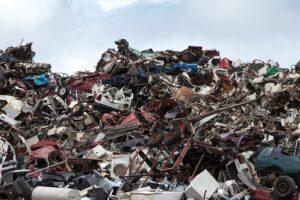Waste management in Hungary is changing from the first of July
According to the recently published decree on the extended producer responsibility system, many tasks are assigned to the companies concerned – EY drew attention in a statement sent to MTI on Monday.

(Photo: Pixabay)
From the first of July, the manufacturer – or, in the case of an article imported from abroad, the first domestic marketer – becomes responsible for waste management at the end of the product’s life cycle. They pointed out that with the introduction of the new model, many tasks fall on the companies: those involved have an obligation to register, after which they must provide data to the waste management authority and pay a fee to the concession company. Due to failure to register, the authority has the option not only to impose fines, but also to suspend the company’s activities – Róbert Heinczinger, EY’s tax partner, is quoted in the announcement.
The new system serves to achieve long-term goals
The system contributes to the fact that Hungary is able to reduce the rate of municipal waste recycling in accordance with the EU goals. The goal of the union is for all member states to increase this value to 55 percent by 2025, 60 percent by 2030, and then 65 percent by 2035. In Hungary, between 2014 and 2021, according to Eurostat data, this ratio was between 30 and 38 percent.
The introduction of the new system also affects the environmental protection product fee, which was already transformed last year.
From July 1, the extended producer responsibility fee will be deducted from the current product price items, which will have to be paid to the National Tax and Customs Office (NAV) in the usual way – they wrote.
MTI
Related news
What does NAV’s new audit plan tell companies? – EY analysis
🎧 Hallgasd a cikket: Lejátszás Szünet Folytatás Leállítás Nyelv: Auto…
Read more >EY Businessman of the Year: Tibor Veres is the grand prize winner, six special awards were also given out
🎧 Hallgasd a cikket: Lejátszás Szünet Folytatás Leállítás Nyelv: Auto…
Read more >Related news
State compensation for the victims of Bászna Gabona Zrt. has been completed
🎧 Hallgasd a cikket: Lejátszás Szünet Folytatás Leállítás Nyelv: Auto…
Read more >József Viski: Adaptation and competitiveness are key for the horticultural sector
🎧 Hallgasd a cikket: Lejátszás Szünet Folytatás Leállítás Nyelv: Auto…
Read more >Festival buzz at the 60th anniversary EuroShop trade fair
🎧 Hallgasd a cikket: Lejátszás Szünet Folytatás Leállítás Nyelv: Auto…
Read more >








